SPH revamps a beloved all-School event, announces MPH Zoom-posium in April
Held in person on the University of Washington campus for the last 21 years, the School of Public Health's annual MPH Practicum Symposium will go online for the first time in 2020, in light of public health guidelines to help curb the spread of the novel coronavirus in Seattle.
The MPH practicum allows MPH students to take part in immersive, team-based work to address real-world public health challenges. This year, more than 40 students will present their practicum learning experiences in a series of sessions held on Zoom, a popular video conferencing tool. Sessions will be held every Tuesday and Thursday beginning April 14. Each student presenter will have around 15 minutes to present and answer questions.
View Presenter, Site, and Project Information
Faculty Moderator: Ray (Bud) Nicola
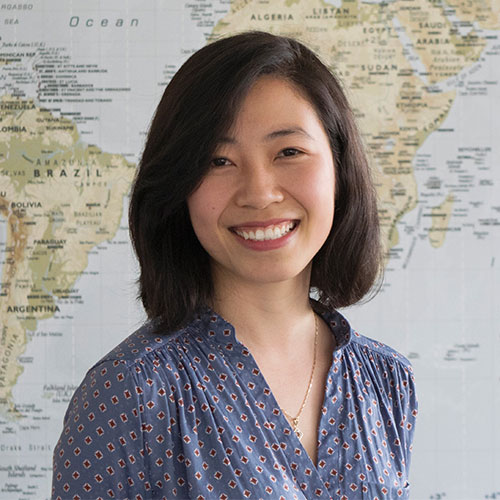
Protecting Health from Climate Change
PRACTICUM SITE: Center for Health and the Global Environment (CHanGE)
SITE SUPERVISOR: Kathleen Dolan
DEPARTMENT: Global Health
FACULTY ADVISER: Kristie Ebi
I began my career as a general practitioner and medical instructor at Thai Nguyen National General Hospital and University of Medicine and Pharmacy in 2014. There, I devoted myself to the community and experienced first-hand the deep-seated inequities and loopholes in health systems. My passion for Global Health was driven through my experiences along the way while I worked in Vietnam. I was very interested in expanding my skills and knowledge in research and practicing with a focus on women's health. For my practicum, my project partner Jason and I developed and updated an online training resource and onsite training program for the Environmental Health Organizations (EHOs) of the Federated States of Micronesia. The purpose was to address the environmental health (EH) impacts of climate change through a focus on knowledge, awareness, and mitigation strategies for EHOs to combat EH-related issues due to climate change. In the future, I hope to use my quantitative and qualitative research skills to help Asian communities better understand their health needs and improve interventions to reduce health disparities amongst local populations. Outside of work, I enjoy spending time cooking new foods, playing my Ukulele, traveling with my husband, and watching Game of Thrones.
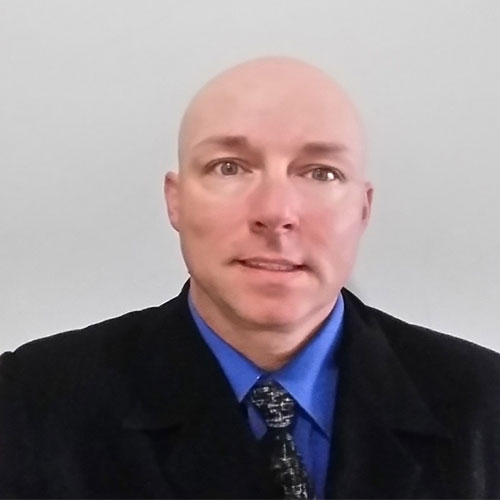
Environmental Health Impacts of Climate Change in FSM
PRACTICUM SITE: Association of State and Territorial Health Officials
SITE SUPERVISOR: Kathleen Dolan
DEPARTMENT: Global Health
FACULTY ADVISER: Kristie Ebi
I began my career working as a public-school teacher in the Appalachian Mountains in North Carolina. I then began my career as an environmental health professional in the military. I was in the military when I experienced first-hand the growing need for public health in developing countries throughout the world. My passion for improving environmental and public health globally inspired me to pursue the Global Health MPH program where I continue to expand my interests and skills in nutrition, emerging zoonotic diseases, and environmental health. For my practicum, I designed a “train the trainer” educational series focused on environmental health impacts in the Federated States of Micronesia (FSM). The practicum in collaboration with the UW CHanGE Center and Association of State Territorial Health Officials (ASHTO), and FSM public health officials, I hope the training positively impacts the population and preserves health and happiness Outside of work, I enjoy spending time with my family, enjoying the outdoors, and church activities.
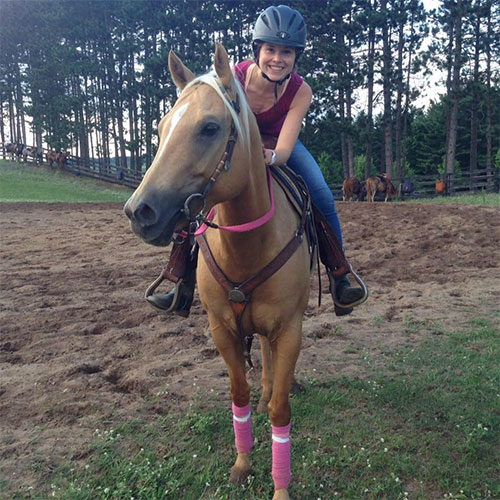
Improving the Management of Laboratory Animal Allergy at the Healthy Animal Worker Clinic (HAWC)
PRACTICUM SITE: Harborview Medical Center
SITE SUPERVISOR: Esi Nkyeker
DEPARTMENT: Environmental & Occupational Health Sciences
FACULTY ADVISER: Peter Rabinowitz
Work experiences in both veterinary and human immunology research laboratories sparked my interest in studying disease in a comparative way, looking at similarities in how humans and animals get sick. At the same time, I was interested in how contact with animals affected human health and decided to pursue my MPH in One Health to study the human immunological impact of work with animals. For my practicum, I started a quality improvement project for the care of animal workers with occupational allergies at the Healthy Animal Worker Clinic at Harborview Medical Center. I now plan to start medical school this summer after finishing my MPH. As I train to become a physician, I hope to continue to give special consideration to ways in which humans and animals can safely and ethically share the planet. Outside of my work, I enjoy spending time with horses, racing on a women’s cycling team, and exploring the outdoors.
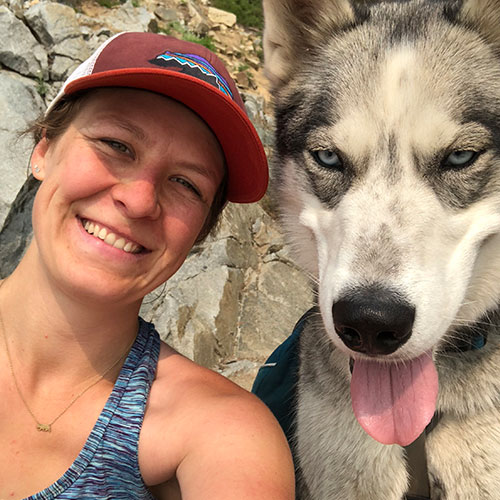
Early Pregnancy Loss Practice Integration for Advanced Practice Clinicians
Early Pregnancy Loss Practice Integration for Advanced Practice Clinicians
PRACTICUM SITE: University of Washington Medical Center – Department of Obstetrics and Gynecology
SITE SUPERVISOR: Erin McCoy
DEPARTMENT: Health Services
FACULTY ADVISER: Todd Edwards
I began my career in the reproductive health field working in an abortion training non-profit organization. From there, I worked in providing direct services in a low-income clinic, at an advocacy non-profit, and in multiple research roles. My passion for expanding access to comprehensive reproductive health for all people led me to the MPH, Health Services-Maternal and Child Health program here at UW. For my practicum, I created a toolkit for advanced practice clinicians to utilize when starting the process of integrating care for early pregnancy loss into their practice. Throughout this project, I was able to weave policies, social services, and research into a website that we hope will be utilized throughout Washington State. Advanced practice clinicians integrating these services will reduce barriers to accessing care for many patients across Washington State, while allowing APCs to practice at the top of their licensure. In the future, I hope to continue creating easier access for family planning, abortion, and comprehensive reproductive healthcare through policy change, research, and advocacy. Outside of work and school, I enjoy all types of outdoor adventures with my fluffy dog sidekick, cooking, reading, and spending time with friends and family.
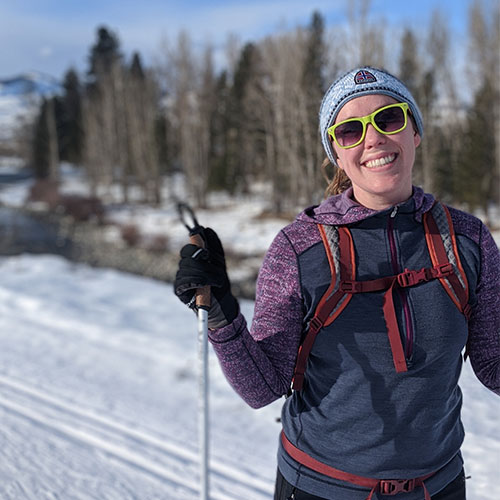
Think Better, Feel Better: A Quality Improvement Project in Integrated Mental Healthcare Delivery
Improving the Management of Laboratory Animal Allergy at the Healthy Animal Worker Clinic (HAWC)
PRACTICUM SITE: Harborview Medical Center
SITE SUPERVISOR: Esi Nkyeker
DEPARTMENT: Environmental Health
FACULTY ADVISER: Peter Rabinowitz
Work experiences in both veterinary and human immunology research laboratories sparked my interest in studying disease in a comparative way, looking at similarities in how humans and animals get sick. At the same time, I was interested in how contact with animals affected human health and decided to pursue my MPH in One Health to study the human immunological impact of work with animals. For my practicum, I started a quality improvement project for the care of animal workers with occupational allergies at the Healthy Animal Worker Clinic at Harborview Medical Center. I now plan to start medical school this summer after finishing my MPH. As I train to become a physician, I hope to continue to give special consideration to ways in which humans and animals can safely and ethically share the planet. Outside of my work, I enjoy spending time with horses, racing on a women’s cycling team, and exploring the outdoors.
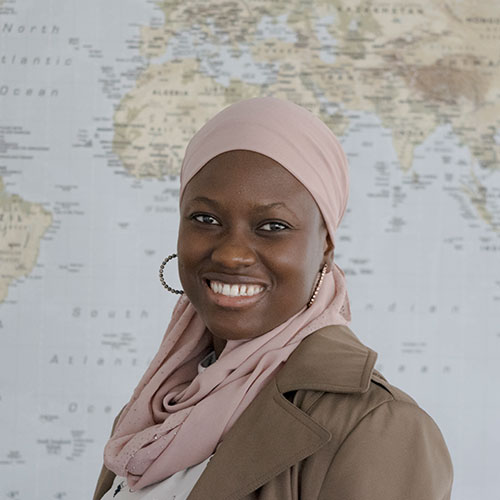
Empowering Mothers to Screen and Identify Malnutrition in their Infants: The Mama Aweza Trial
PRACTICUM SITE: University of Washington – Global Center for Integrated Health of Women, Adolescents, and Children
SITE SUPERVISOR: Alyson Shumays
DEPARTMENT: Global Health
FACULTY ADVISER: Christine McGrath
I was born in Senegal and grew up in California. My interests in health stem from my experiences living in underrepresented and underserved communities both in Senegal and in California. My research interests include: infant malnutrition, infectious diseases, and poverty and their impact on health, educational inequalities, health inequalities, etc., in low income countries/communities. This past school year, I worked as a research assistant (RA) with Dr. Donna Denno on the Minimally Invasive Tissue Sampling (MITS) in the Childhood Acute Illness and Nutrition Network (CHAIN), and in the Environmental Enteric Dysfunction (EED) studies. This year I am an RA working on data management with various Global WACh studies including CHAIN, the Mama Aweza trial and the Toto Bora trial. I did my practicum at Global WACh, taking part in the design, development and roll out of the Mama Aweza trial.
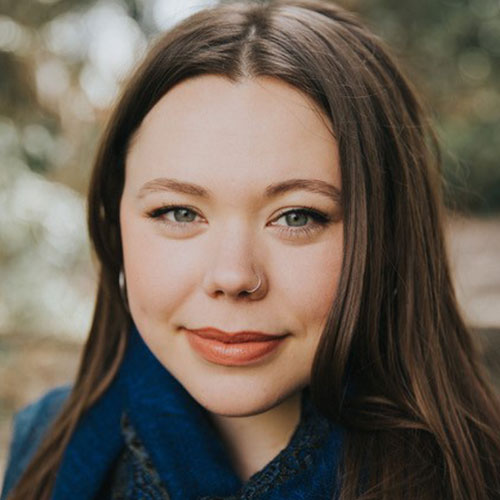
Obstetric Hemorrhage Initiative Toolkit
PRACTICUM SITE: Comagine Health – Maternal and Child Health Team
SITE SUPERVISOR: Meredith Roberts
DEPARTMENT: Health Services
FACULTY ADVISER: Anne Turner
As a full-spectrum doula, I've had a front-row seat to the maternal-infant health crisis currently affecting families in the United States. The inequities of access and choice I observed while supporting my clients through the perinatal period motivated me to pursue my MPH in Maternal and Child Health and complete my practicum at Comagine Health, a healthcare quality improvement nonprofit working to raise the standard of maternal care in Oregon. In this role, I supported the development of a clinical toolkit designed to reduce the incidence of obstetric hemorrhage, a leading cause of maternal morbidity and mortality. I enjoyed the experience of collaborating with multiple stakeholders to craft effective, community-specific policies and hope to continue addressing maternal health disparities at the state level through evidence-based and inclusive initiatives. On my days off, you can find me baking sourdough bread from scratch, combing thrift stores for 1970s pottery, or exploring new hiking trails in the Oregon Coast Range.
Faculty Moderator: Clarence Spigner
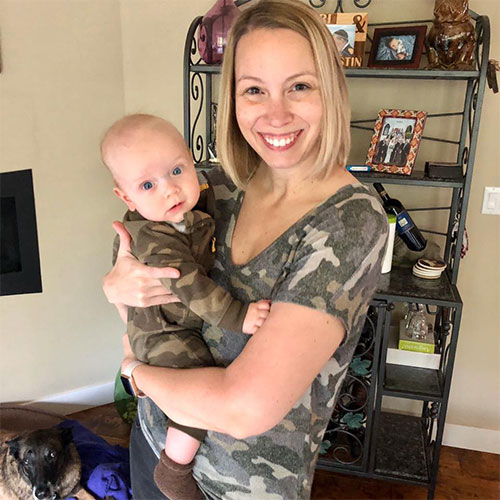
Compassion Fatigue in Animal Research
PRACTICUM SITE: Madigan Army Medical Center – Department of Clinical Investigations
SITE SUPERVISOR: Sara Hegge
DEPARTMENT: Environmental & Occupational Health Sciences
FACULTY ADVISER: Peter Rabinowitz
I am an MPH Candidate at the University of Washington - Department of Environmental and Occupational Health Sciences and a veterinarian in the U.S. Army. I am interested in increasing workplace safety and mental well-being among veterinary workers. According to the Centers for Disease Control and Prevention, veterinarians face disproportionately high suicide rates. One likely contributor to suicide risk is “compassion fatigue,” defined as the mental strain resulting from caring for others experiencing emotional and/or physical pain. For my practicum, I assessed population needs and developed recommendations to help reduce and prevent compassion fatigue in the research veterinary worker populations. Outside of work, I enjoy spending time with my family, visiting with friends, traveling, and spending time outdoors.
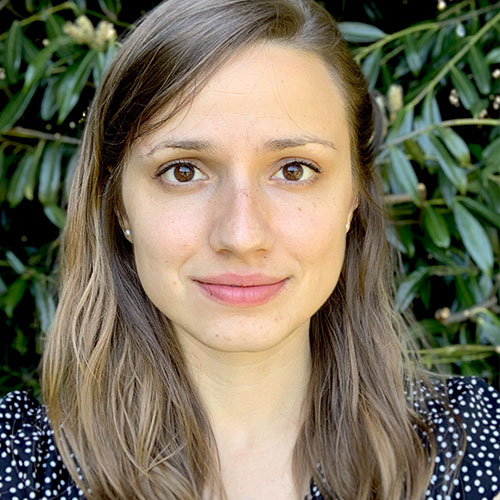
The Benefits of Medical Respite: An Analysis of Cost Savings
The Benefits of Medical Respite: An Analysis of Cost Savings
PRACTICUM SITE: Harborview Medical Center – Edward Thomas House
SITE SUPERVISOR: Melissa Brown
DEPARTMENT: Health Services
FACULTY ADVISER: William Daniell
I am a second-year Health Services MPH candidate also pursuing a Graduate Certificate in Demography and Ecology. My background is in anti-poverty work and GIS-based analysis. For my practicum, I partnered with three other students to complete a mixed-methods assessment of the psychosocial and financial benefits of Edward Thomas House Medical Respite. Medical respite programs provide a place for people experiencing homelessness to fully recover following hospital discharge. We found respite care not only supported positive health outcomes and led to tremendous cost savings, but it also fostered an increased sense of peace and community among patients. Following graduation, I will return to Texas to use the skills I’ve gained at UW to support community-led work for health equity. Outside of school, I am engaged with local anti-poverty efforts and a study of airport impacts on community health. I also enjoy gardening, plant identification, reading poetry, and hiking.
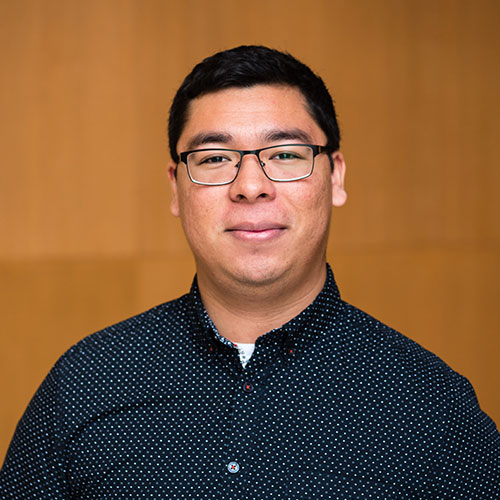
A Qualitative Study of Latino Workers’ Experiences with Washington State’s Department of Labor and Industries Healthcare Benefits
PRACTICUM SITE: Latino Center for Health
SITE SUPERVISOR: Leo Morales
DEPARTMENT: Health Services
FACULTY ADVISER: India Ornelas
I am a second-year MPH candidate in the Department of Health Services in the Social and Behavioral Sciences degree track. As a son of immigrant farmworkers, I am interested in working on research around Latino populations and have experience working with agriculture workers in Eastern Washington. In 2019, I worked on my practicum project with the Latino Center for Health to identify Latino workers’ experiences accessing Labor and Industries medical services. In the future, I hope to continue conducting work with the Latino community in an effort to address the social determinants of health affecting their health. Outside of school, I enjoy watching sports and spending time with family.
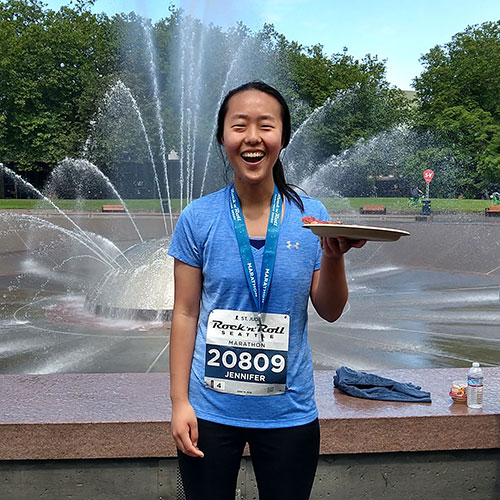
Initial Planning of the Refugees’ Endeavors For Utilizing Governmental Existing Efforts in the State (REFUGEES) Project
PRACTICUM SITE: University of Washington- UW DeRouen Center for Global Oral Health
SITE SUPERVISOR: Ana Lucia Seminario
DEPARTMENT: Epidemiology
FACULTY ADVISER: Daniel Enquobahrie
Having immigrated from China to the US at the age of 5, I am motivated to improve immigrant and refugee health through the tools of epidemiology and am excited to be doing just that for my practicum. With the DeRouen Center for Global Oral Health, housed in the UW School of Dentistry, and partnerships with Department of Health, Health Care Authority, and Department of Social and Health Services, I am working to establish baseline dental services utilization rates among refugees resettled in Washington. Results from this work can then be used to develop culturally relevant interventions that will help improve oral health for thousands of refugees in the state. In the future, I hope to pursue a career in public health practice where I can use epidemiology to improve health outcomes. Outside of work, I can be found running around Green Lake, hiking, or reading.
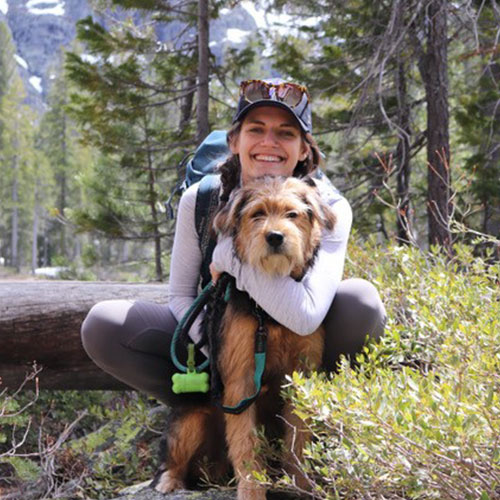
Satisfaction, Substance Use & Stability; Measuring Success at a Low-Barrier Suboxone Clinic
PRACTICUM SITE: Hepatitis Education Project
SITE SUPERVISOR: Chelsie Porter
DEPARTMENT: Health Services
FACULTY ADVISER: Amy Hagopian
Working in health care delivery, I was exposed to the structural barriers that prevent a person from accessing care. Passionate to resolve these barriers through policy and programming, I enrolled in the MPH program where I focus my studies on health systems and policy. For my practicum, our team designed a monitoring and evaluation plan for Hepatitis Education Project’s (HEP) low-barrier Suboxone clinic. Our aim was to design a series of tools that were easy to implement, sensitive to the needs of HEP’s clients, and that accurately captured the experience and value of the program. Looking ahead, I hope to use my program evaluation skills to inform the development and measurement of low-barrier health access programs in Washington. Outside of school I enjoy trail running with my dog, making homemade pizza, doing yoga with friends, and drinking too much coffee.
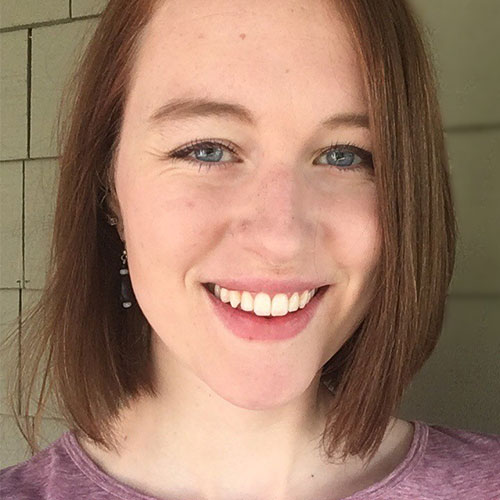
Latent TB Infection and Nontuberculous Mycobacteria in King County
PRACTICUM SITE: Public Health – Seattle & King County – Tuberculosis Control Program
SITE SUPERVISOR: Katelynn Gardner Toren
DEPARTMENT: Epidemiology
FACULTY ADVISER: Christine Khosropour
I am a second-year MPH student in the department of Epidemiology. I’m originally from the Seattle area but also lived in the Midwest: Chicago and Iowa City. I did my undergraduate work at the University of Iowa in microbiology and spent many years working in the laboratory sciences. From microbiology, infectious disease epidemiology was a logical next step! My primary interests are in respiratory pathogens and antimicrobial resistance. For my practicum, I worked with Public Health Seattle & King County (PHSKC), estimating the burden of latent tuberculosis infection (LTBI) in King County. In the future, I hope to work in programming for infectious disease prevention initiatives. Outside of school, I enjoy skiing, backpacking, playing hockey, and exploring new parts of Seattle with my friends and family.
Faculty Moderator: Gita Krishnaswamy
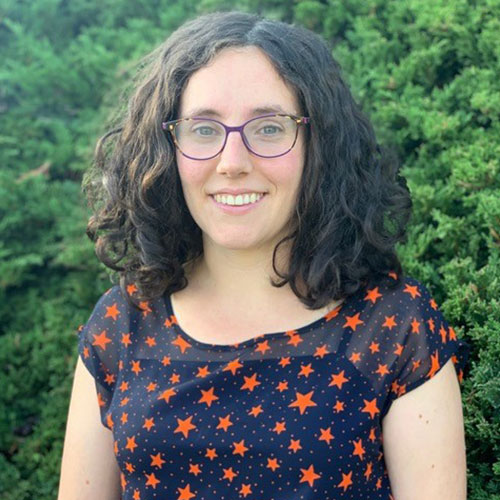
A Local Policy Process for Promoting Healthy Food Access with the King County Board of Health
PRACTICUM SITE: Public Health – Seattle & King County – Health Eating Active Living
SITE SUPERVISOR: Elizabeth Kimball
DEPARTMENT: Nutritional Sciences
FACULTY ADVISER: Anne Lund
As a registered dietitian, I decided to pursue a Master of Public Health in the Nutritional Sciences program because I am passionate about doing work that addresses the social determinants that affect food availability in our communities. I am also interested in thinking about how our conversations about food and health can foster an inclusive approach to all communities. My prior experience working with clients as a clinical dietitian taught me that the level of health that is affected by what we eat is often out of an individual’s control, and largely affected by the context and environment. For my practicum experience, I worked with the Healthy Eating, Active Living unit at Public Health - Seattle & King County in their work to coordinate a county-level healthy eating policy committee and collaborate with communities on developing a potential nutrition-focused health policy. In my future career, I hope to work to address nutrition-related health disparities. When I am not a busy graduate student, I enjoy trail running and hiking in the Pacific Northwest.
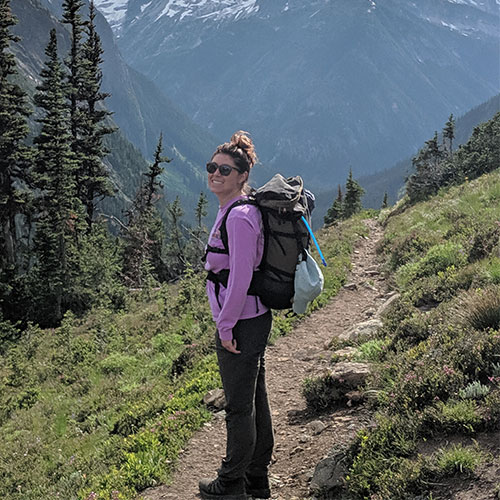
Community Organizing in the Puget Sound Area
PRACTICUM SITE: Industrial Areas Foundation Northwest
SITE SUPERVISOR: Joe Chrastil
DEPARTMENT: Health Services
FACULTY ADVISER: Gita A. Krishnaswamy
In my undergraduate dental hygiene education and clinical rotations, it became clear that there are incredible inequities in achieving not just oral health, but overall health status in our country. As I moved into private practice, you’d think those inequities wouldn’t be as salient, but they were. As I continued my one-on-one clinical relationships with my patients, I couldn’t help but feel I needed to do more than educate and treat the patients who could technically afford the care I was providing. This led me to UW for my MPH in Health Services and further to my practicum with IAFNW, a network of community organizers and membership institutions addressing inequities from a grassroots perspective every single day. It opened my eyes to yet another way we can come together and tackle the institutional inequities that exist on a local level. Outside of school, I spend time with my wonderful fiancé. We take hikes on the weekends, eat and drink at local restaurants, and cuddle with our two crazy cats (but we are very much dog people too)! My future goals include finding a career that will allow me to utilize my dental knowledge and expertise to address the ongoing issue of lack of access to oral health care in the US.
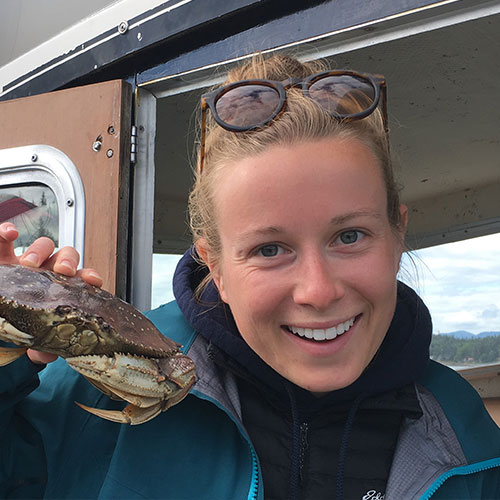
Sparking Conversation in a Community Health Assessment in Jefferson County, Washington
PRACTICUM SITE: Kitsap Public Health District
SITE SUPERVISOR: Siri Kushner
DEPARTMENT: Epidemiology
FACULTY ADVISER: Mandy Fretts
I am a second-year MPH candidate studying Epidemiology with interests in community-based practice and research, cardiometabolic diseases, nutrition, and social determinants of health. For my practicum, I worked with the Kitsap Public Health District and Jefferson County Public Health Department to support the 2019 Community Health Assessment (CHA) in Jefferson County, a rural county with 31,000 people on Washington State’s Olympic Peninsula. My role was to introduce and apply qualitative methods in the CHA by way of community forums and key informant interviews. The qualitative research skills I developed from this experience contribute to my future goals in epidemiologic research involving community-based participatory methods and public health practice in resource limited settings. Before the MPH program, I worked in tobacco prevention and control at a tribal health consortium in Southeast Alaska, and I will return there in Summer 2020 to support chronic disease surveillance and program development. I love to spend my free time cooking with friends and family, backpacking and teaching group fitness classes.
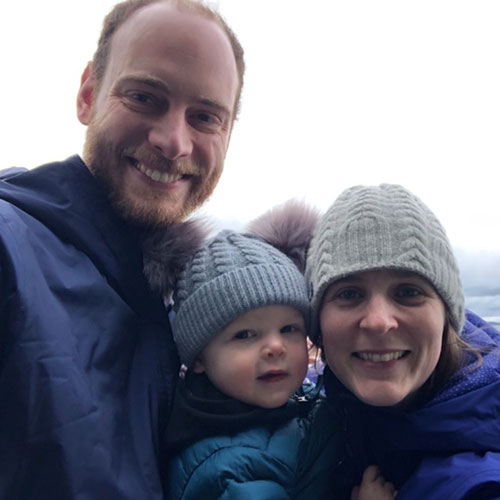
The Case for Fully Funded Family Planning Services in Washington State
PRACTICUM SITE: Washington State Department of Health – Family Planning Program
SITE SUPERVISOR: Cynthia Harris
DEPARTMENT: Health Services
FACULTY ADVISER: Michelle Garrison
I am pursuing an MPH in Health Services to expand my career beyond the clinical setting. I am a pediatrician and an adolescent medicine fellow, and after almost a decade in medical training I want to focus my efforts beyond the individual patient encounter and think about health care through a population and public health lens. My main interest is improving access to health care for underserved and marginalized communities, especially access to reproductive health services. For my practicum, I worked with the Family Planning Program at the Washington State Department of Health to create a white paper summarizing the impact of the Trump administration’s new Title X rule. The new rule aims to further limit access to the full range of reproductive health services for patients by prohibiting sites that receive Title X funding from counseling about abortion or providing referrals and by requiring a complete financial and physical separation between services funded by Title X and abortion services. The white paper will be used to inform legislators of the importance of funding the Family Planning Program at the state level in the absence of federal funding. Outside of school, I enjoy spending time with my family, hiking, skiing, and swimming.
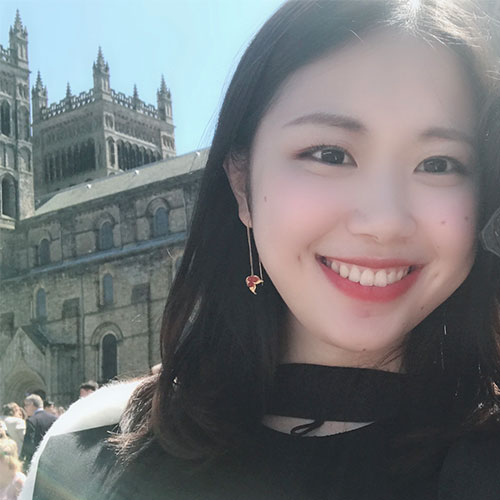
Happy Mom, Happy Home: Adapting mhGAP Materials to the Local Context of Can Tho, Vietnam
PRACTICUM SITE: Global Mental Health Center, University of Washington
SITE SUPERVISOR: Ian Bennett
DEPARTMENT: Health Services
FACULTY ADVISER: Hendrika Meischke
I am a second-year MPH candidate in the Health Services – Social and Behavioral Sciences Track. My prior academic training is in Anthropology and my primary research interests are in maternal mental health, ethics and power dynamics in seeking care and accessing health services, especially among adolescent girls and young women, and women from low-resource settings. For my practicum, I worked with the Global Mental Health Center here at the University of Washington to adapt mhGAP materials developed by the WHO to the local contexts of our collaborators in Can Tho, Vietnam. I hope to continue working towards understanding everyday struggles of and a worry-free pregnancy experience for all women regardless of their age, ethnicity, socioeconomic background and immigration status. In my spare time, I like exploring café shops, playing with my cat, and watching classical ballet shows.
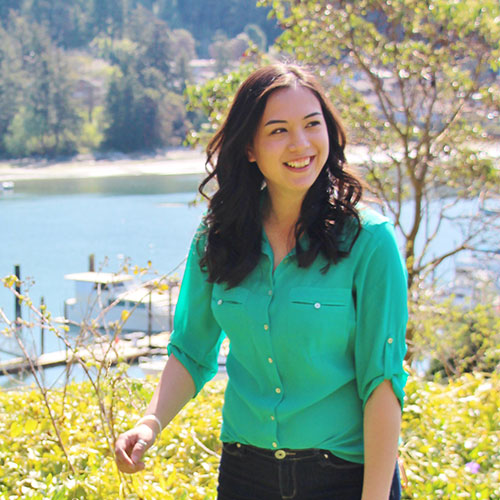
Determining the Design of an E-Learning Mentoring Module
PRACTICUM SITE: Northwest Center for Public Health Practice – UW Tower, T-14
SITE SUPERVISOR: Sarah Manchanda
DEPARTMENT: Health Services
FACULTY ADVISER: Betty Bekemeier
I am a second-year MPH candidate in the Health Services Program with a concentration on Health Systems and Policy. After working in local public health in rural Oregon, I realized how important policy-making is in improving the health of individuals and communities. While in the MPH program, I’ve developed my qualitative research skills and used them during my practicum where I interviewed public health professionals in the Northwest Region about mentoring practices and succession plans. This data has been used in my capstone as I’ve developed an e-learning module, Mentoring Matters, with the Northwest Center for Public Health Practice. After graduating this spring, I hope to return to public health practice and use my skills in public health policy-making and community health evaluation. Outside of school, I enjoy trying new restaurants, watching movies with my family, and random adventures with my friends.
Faculty Moderator: David Masuda
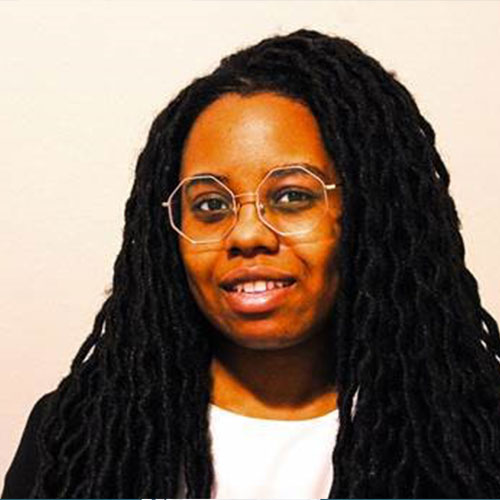
Disaster & the Agricultural Community
PRACTICUM SITE: Harborview Medical Center – Allergy and Infectious Disease
SITE SUPERVISOR: John Lynch
DEPARTMENT: Environmental & Occupational Health Sciences
FACULTY ADVISER: Nicole Errett
I decided to study One Health because of the internships I participated in when I was an undergraduate. I originally was studying Animal Science but was captivated by experiences with emergency management situations during my internships. The internships allowed me to experience various practices of emergency management and witness multiple professions, viewpoints, and perspectives collaborate to form solutions. My passion for aiding in the improvement and implementation of more holistic approaches to emergency management is what led me to pursue my MPH. I created a Disaster module for the Agricultural Biosafety Curriculum for my practicum. This module will inform agricultural professionals on disaster preparation and policies for their farm during various disasters. Outside of school, I like to spend my time doing photography and traveling. In the future, I would like to work in emergency management or a similar field and create prevention and response plans for emergencies on various scales.
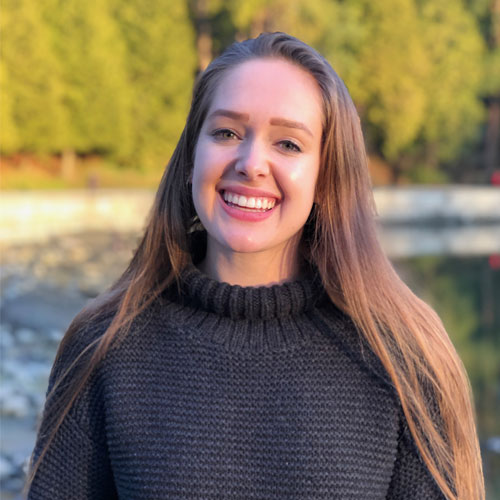
Developing Consistent Wildfire Smoke Messaging for Washington State
PRACTICUM SITE Wildfire Smoke Impacts Advisory Group Workgroup in partnership with Yakima Health District
SITE SUPERVISOR: Holly Myers
DEPARTMENT: : Environmental & Occupational Health Sciences
FACULTY ADVISER: Tania Busch Isaksen
I chose a career in environmental health because I believe in protecting people when they may not have the ability to protect themselves. My passion specifically for air quality and climate change led me to an MPH in Environmental and Occupational Health Sciences at UW, where my interests focus on wildfire smoke and health. For my practicum, I developed a toolkit for wildfire smoke communication in the state of Washington as a member of the Wildfire Smoke Impacts Advisory Group. I worked with practice partners across the state, including the Washington State Department of Health (DOH). My practicum experience was a great asset in landing my dream job at DOH where I now work as the Air Quality Policy Specialist. At DOH I coordinate our wildfire smoke response and engage with partners to increase our response capacity.
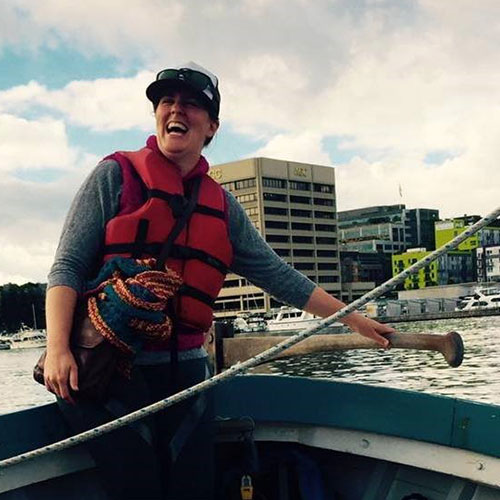
Disaster Recovery Plan: Boone County, IL
PRACTICUM SITE: Boone County Health Department – Emergency Preparedness
SITE SUPERVISOR: Ellen Genrich
DEPARTMENT: Health Services
FACULTY ADVISER: Nicole Errett
I chose to study public health and urban planning because so many urban planning issues are actually public health issues and vice versa. I have a passion for helping people through their hardest times with compassion and empathy which has driven me to work in healthcare preparedness and disaster mitigation, response, and recovery. I embrace the name Debbie Doomsday with a smile. My background is architecture and so I know how much our built environment impacts every facet of our lives, health being one of the largest areas affected. For my practicum I was able to work remotely with a small rural health department in northern Illinois. We worked together to start the process of writing a countywide Disaster Recovery Plan. Although recovery plans can be a requirement for many states they often originate within the Office of Emergency Management or Community Planning. Because of this, health is often left out or a second thought overall. Our goal was to put health at the forefront of our plan to show other counties how important public health is and always will be in the community recovery process. The importance of public health in preparedness is being highlighted currently around the globe and I am so thankful that I was able to participate in this project. In the future, I hope to work in the private sector in healthcare or critical infrastructure (power, water, communications, etc) risk reduction. Outside of work I enjoy playing board games, walking by the water with my dog, and reading fiction in all genres.
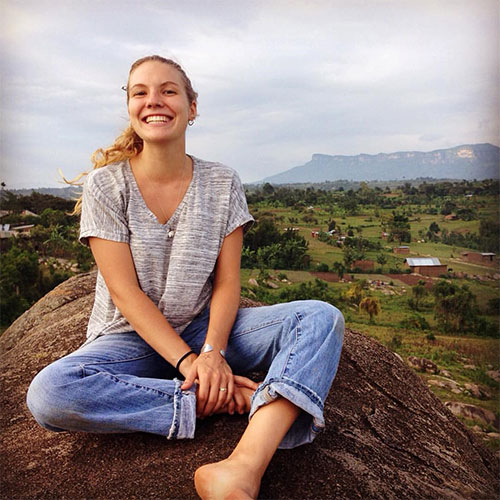
Health Workers for All Coalition: Strengthening Health Workforce Advocacy through a Global Civil Society Coalition
PRACTICUM SITE: Wemos Foundation - Health Workers 4 All (HW4All) Coalition
SITE SUPERVISOR: Corinne Hinlopen
DEPARTMENT: Global Health
FACULTY ADVISER: Julia Robinson
I am a second year MPH candidate in the Leadership, Policy, and Management Track in the Department of Global Health. I am interested in health workforce issues, global health policy, and gender equity. Before coming to study at the University of Washington, I served as a Peace Corps Volunteer in Uganda, where I worked on adolescent health and maternal and child health programs. For my practicum, I worked with the Health Workers for All (HW4All) Coalition's Secretariat to develop a stakeholder engagement map, a theory of change for the Coalition, and supported their communications and website design. In addition, I presented my thesis research to the Coalition members during a webinar in January 2020 and wrote a blog post about gender equity in the health workforce and health labor migration for the Coalition's website. In the future, I hope to continue to advocate for gender equity in the health workforce and promote health workers' rights to decent working conditions and fair pay. Outside of work and school, I like to ski, hike, travel, and try new foods.
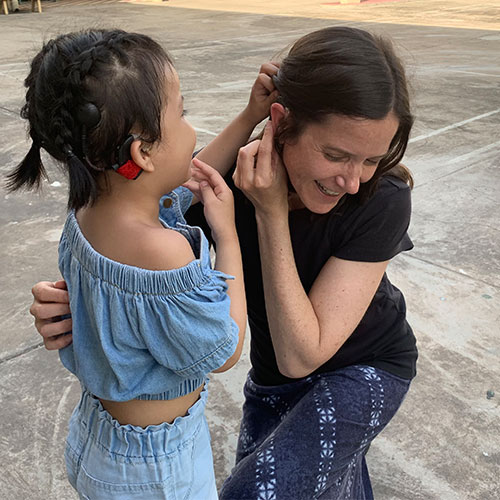
WHO World Report on Hearing: Communications Plan
PRACTICUM SITE: World Health Organization
SITE SUPERVISOR: Shelly Chadha
DEPARTMENT: Global Health
FACULTY ADVISER: Stephen Gloyd
I am the founder and executive director of the Global Foundation For Children With Hearing Loss. Our nonprofit organization works with partners in low-resource countries to develop local professional expertise and resources in hearing health care and early education that young children who are deaf or hard of hearing need to learn to listen and talk. I was born with a severe hearing loss but benefited from early identification and early intervention. My passion is to ensure that children living in less developed areas of the world have access to similar expertise and services so they can thrive. My practicum was spent at the WHO in Geneva leading development of a communications strategy for the upcoming launch of the WHO World Report on Hearing. My thesis focuses on pediatric hearing health services in Mongolia. I am pursuing a MPH degree in Global Health to deepen my understanding of health policy development and to acquire new skills for my work. I hope to continue contributing to international efforts to raise awareness in the global health sphere for pediatric hearing loss and effective strategies to address it. In my spare time, I enjoy travel and active outdoor pursuits.
Faculty Moderator: Stephen Gloyd
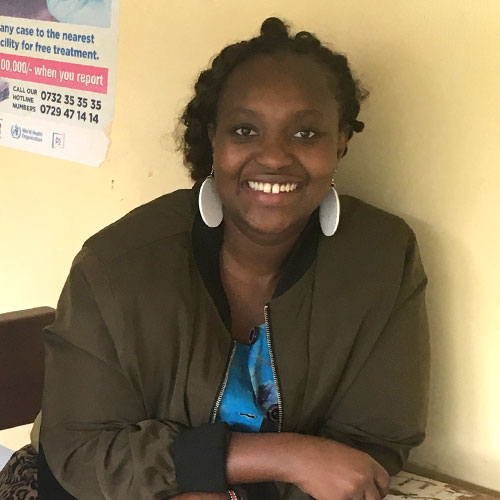
Assessment of HIV testing services for family planning clients and postpartum women in Kenya
PRACTICUM SITE: MCH Clinics in Nairobi and Kisumu, Kenya
SITE SUPERVISOR: Daniel Matemo and John Kinuthia
DEPARTMENT: Global Health
FACULTY ADVISER: Alison Drake
I am familiar with poor maternal health-care access to low-income Kenyan communities both in the U.S. and abroad. For this reason, I am interested in studying maternal health and solving issues that affect maternal child and newborn health on a global scale. I am a second-year MPH candidate in the Department of Global Health. Prior to starting my MPH, I was a McNair Scholar at the University of Kansas where I worked on a research project on maternal and child nutrition. My research interests are in maternal infant and child health, family planning, health communication, maternal nutrition and health disparities among African American women. For my practicum, I traveled to Kenya where I conducted interviews with providers at six clinics to investigate barriers and facilitators to offering HIV testing in family planning clinics. Through this experience, I have been able to continue building the foundation for doctoral work and my future career in MCH scholarship. When I am not working on my research, I love baking, reading novels, and weightlifting.
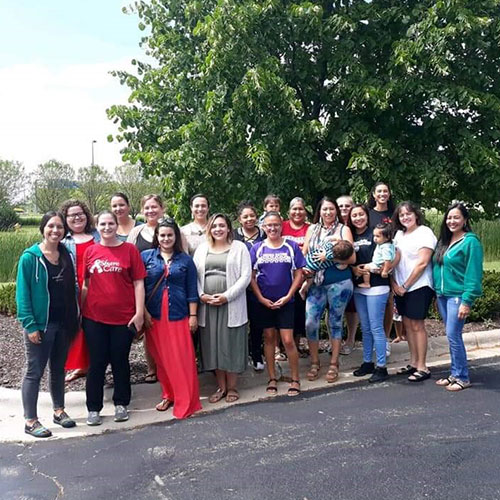
Future Ancestors : Reclaiming Breastfeeding Traditions in Native American and Indigenous Diaspora Populations in the United States
PRACTICUM SITE: United Indians of All Tribes
SITE SUPERVISOR: Camie Goldhammer
DEPARTMENT: Global Health
FACULTY ADVISER: J’May Rivara
My experience with pregnancy, childbirth and parenting inspired me to become a full spectrum doula, where I worked mostly with low-income families in the Seattle area. As a multi-racial Indigenous queer parent, I was witnessing my community experience systemic violence and implicit bias by medical providers.As a result, I also began providing culturally responsive perinatal health education, and began exploring opportunities to engage in meaningful systemic change, including legislative advocacy and program creation for incarcerated pregnant people in Washington State. This work brought me to the MSW/MPH dual degree program at the University of Washington. For my practicum, I designed a program evaluation for an Indigenous community health worker program aimed at increasing breastfeeding rates and knowledge on tribal reservations nationally. I hope to continue developing culturally sustaining models and community based approaches to health practices as an intervention for healing intergenerational trauma. I enjoy spending time with plants, cooking delicious meals for people I love, exploring with my kiddo, and cultivating radial imagination.
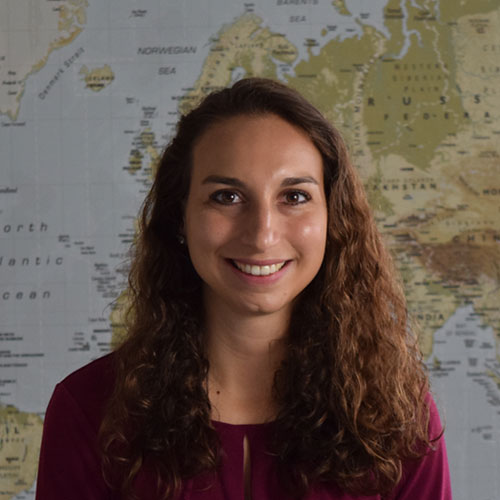
Educational Outreach to Transgender Women in Lima, Peru Regarding HIV Prevention and Hormone Therapy
PRACTICUM SITE: Impacta, Féminas, & Epicentro
SITE SUPERVISOR: Javier Lima
DEPARTMENT: Global Health
FACULTY ADVISER: Susan Graham
I am a first-year MPH candidate studying Global Health and a dual-degree MD/MPH candidate. My practicum project involved improving HIV health literacy amongst trans women in Lima, Peru while providing educational materials about hormone therapy. For my practicum, I presented information regarding the transmission, prevention, and diagnosis of HIV with accompanying pre- and post-presentation questions to gauge knowledge gained from the presentation. A condom negotiation exercise was included in the presentation to address specific health concerns of trans women. I created and distributed two brochures, one regarding information about HIV and the other regarding the effects of hormone therapy. In the future, I hope to conduct public health research aimed at reducing health disparities and improving women's health overall. My intended specialty is internal medicine with a women’s health track. By working in primary care in my clinical practice, I aim to expand access to mental health treatment and diminish mental health stigma. In my free time, I enjoy exercising, traveling, eating different cuisines, reading, and spending time with family and friends.

Evaluation of a Women's Health Course and Establishment of M&E Frameworks at Mayan Families in Panajachel, Guatemala
PRACTICUM SITE: Mayan Families
SITE SUPERVISOR: Nerissa Latchis
DEPARTMENT: Global Health
FACULTY ADVISER: Mary Anne Mercer
I’m a second-year MPH student in the Department of Global Health. Originally from Houston, Texas, I studied engineering as her undergraduate degree and found my love of public health doing work in St. Kitts and Nevis and Guatemala. After graduation, I moved to Guatemala to work in women's health education and on multiple WASH projects. I returned to Guatemala in Summer 2019 to do my practicum project with Mayan Families, a local NGO. While there, I did an evaluation of their women's health course and helped establish M&E frameworks for all of their health programs. In the future, I hope to return to Guatemala and other places in Latin America and the Caribbean to work in health in afro-descendent populations.
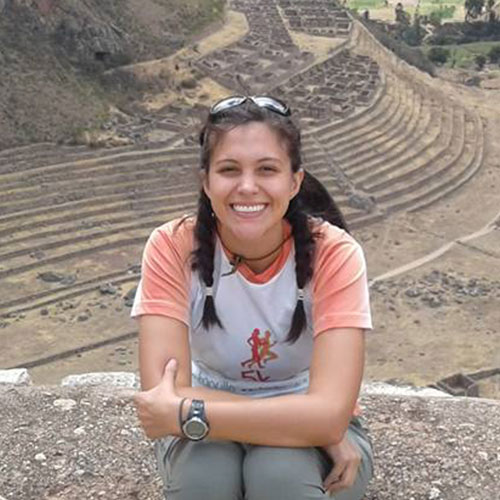
Barriers and Facilitators to Accessing Social Support Groups among Young Latino MSM along the U.S. – Mexico Border
PRACTICUM SITE: Valley AIDS Council
SITE SUPERVISOR: Marco Martinez
DEPARTMENT: Global Health
FACULTY ADVISER: Virginia Gonzales
I am a second-year MPH candidate in the Department of Global Health. For my practicum, I chose to work with a non-profit organization located in the U.S.-Mexico border region as I have familial ties to this area of South Texas. Both growing up as a Latina in the U.S. and working as a community health educator through Peace Corps Ecuador have led me to a passion for public health work with Latinx populations. Working with Valley AIDS Council, I conducted qualitative research with young Latinx MSM from the region, assessing their perceptions of facilitators and barriers to HIV care and participation in social support groups. In the future, I hope to continue working alongside Latinx communities both locally and globally to help improve their access to health care and reduce many of the health disparities that disproportionately affect them. Outside of my work and studies, I enjoy spending time with my family, hiking, practicing yoga, and baking.
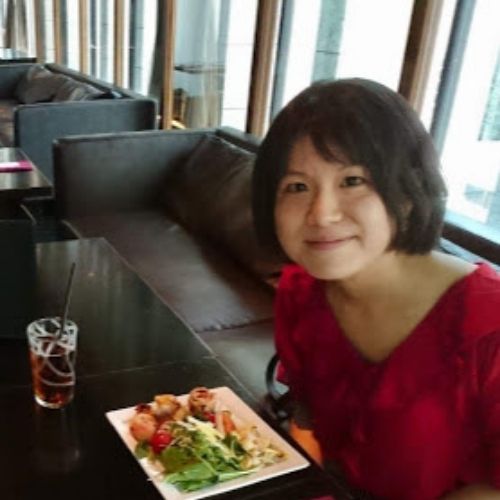
Screening Behavior of Cervical Cancer among Asian Women in Washington
Practicum Site: Pacific Hospital Preservation & Development Authority
Site Supervisor: Jeff Natter/Christina M. Bernard
Department: Health Services
Faculty Advisor: Linda K. Ko
I am a second-year MPH student in Health Services. I am interested in research on human papillomavirus (HPV) and cervical cancer prevention. I am currently working on assessing the effect of HPV self-sampling kit on uptake of preventive health services (i.e. mammography) for my thesis, using data collected at Kaiser Permanente Washington. For my practicum, I completed a project to address social and cultural factors affecting cervical cancer screening attendance among Asian populations in Washington as a Health Equity Scholar intern of Pacific Hospital Preservation & Development Authority (PHPDA). My professional experience comprises managing research projects, analyzing/visualizing health data, and establishing partnerships with public health organizations. In the future, I hope to pursue a career in research to reduce health inequities working with diverse community members. Outside of work, I enjoy spending time traveling, hiking, and watching movies.
Faculty Moderator: Stephen Schwartz
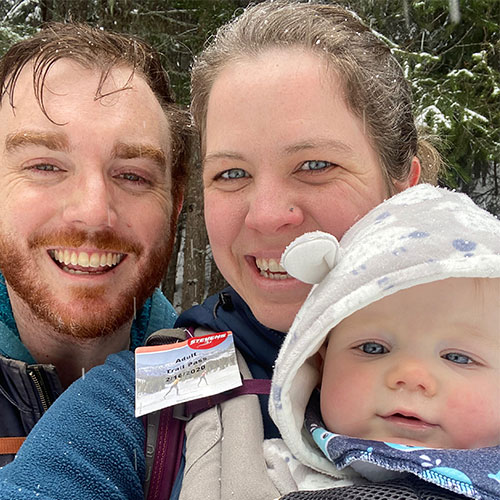
Risk of Suicide, Homicide, and Unintentional Firearms in the Home
PRACTICUM SITE: Public Health – Seattle & King County – Medical Examiner’s Office
SITE SUPERVISOR: Richard Harruff
DEPARTMENT: Epidemiology
FACULTY ADVISER: Frederick Rivara
I am a general surgery resident who spends time taking care of patients with traumatic injuries -many of which are preventable. I often find myself frustrated that I do not have more evidence to support the decisions regarding patient care I have to make every day. I chose to pursue a Master of Public Health in Epidemiology to gain the skills to provide further evidence for clinical decisions and to promote violence and injury prevention. For my practicum, I worked with the King County Medical Examiner’s Office to evaluate firearm deaths in the home. I found that for each self-defense homicide, there are 44 suicides and 7 criminal homicides. We are in the process of publishing these findings and using these findings to advocate for stronger firearm legislation. In the future, I plan to continue to use my skills in epidemiology and clinical research to improve evidence-based surgical care and advocate for violence and injury prevention measures. Outside of work, I am a (relatively) new parent to a wonderful 9-month-old and spouse to an epidemiologist. We enjoy getting out in nature, spending time with close friends and family, and eating good food.
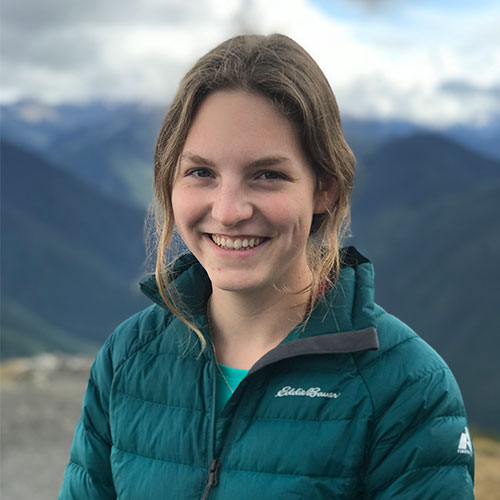
Childhood E. coli Infection, Hemolytic Uremic Syndrome, and Women’s Reproductive Health
PRACTICUM SITE: Marler Clark, The Food Safety Law Firm
SITE SUPERVISOR: William Marler
DEPARTMENT: Epidemiology
FACULTY ADVISER: Ann Vander Stoep
I am a second-year MPH candidate in Epidemiology in the Maternal and Child Health track. Prior to graduate school, I researched Chronic Kidney Disease of Unknown Etiology (CKDu) in agricultural communities in Sri Lanka. I also contributed to research on community nutrition, including feeding styles in families experiencing food insecurity. I had the opportunity to complete my practicum project at Marler Clark Law Firm, which specializes in representing victims of foodborne illness outbreaks. I focused on clients who experienced hemolytic uremic syndrome (HUS) as a result of E. coli infections as children and conducting interviews to learn about their subsequent experiences with reproductive health as adult women. In my spare time, I enjoy hiking and rock climbing with friends, cooking, dabbling in visual arts, and travelling to visit friends and family. After graduation, I hope to work as an epidemiologist or public health specialist focusing on environmental health or infectious disease.
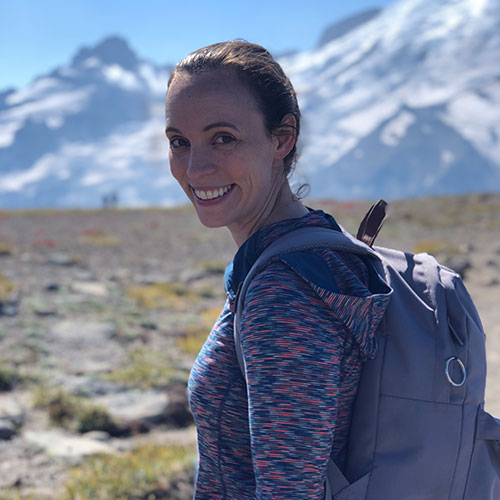
Identifying Strategies for Firearm Injury & Prevention Research Funding: Findings from a Scoping Review of Literature Published during the Dickey Amendment Era (1997-2017)
PRACTICUM SITE: Harborview Medical Center – Firearm Injury & Policy Research Program
SITE SUPERVISOR: M. Bellenger
DEPARTMENT: Epidemiology
FACULTY ADVISER: Ali Rowhani-Rahbar
I started my professional career as a multimedia journalist and have slowly transitioned over the years to public health communications. Now as an MPH epidemiology student, I am interested in the relationship between epidemiology and communications for public health, especially around highly mediatized public health issues such as firearm injury and violence prevention. This practicum project started as a point-of-entry into the field of firearm injury research through a scoping review that allowed me to see the breadth of research conducted over the last two decades, despite funding limitations. The review identified sources of funding for firearm injury and prevention research that helped me design a funding strategy for the Harborview Injury Prevention & Research Center’s Firearm Injury & Policy Research Program (FIPRP). This strategy will help leadership at FIPRP to identify strategic and targeted opportunities that will further fund their research program. I would like to continue exploring opportunities that merge epidemiology with communications and to find ways to apply my skills in public health practice. Outside of school and work, I love to run, bike, and hike with my partner, spend quality time with our family, and volunteer with the SEAL Team.

Results and Reliability of the KCMEO Real-Time Overdose Surveillance Project
PRACTICUM SITE: Public Health – Seattle & King County – Medical Examiner’s Office
SITE SUPERVISOR: Nicole Yarid
DEPARTMENT: Epidemiology
FACULTY ADVISER: Jennifer Balkus
I am a second year Master of Public Health candidate in the epidemiology department and am passionate about using biological samples in public health. This interest is inspired by my background in biochemistry which has catalyzed an interest in the underpinning mechanisms of disease and injuries. In addition to being a student, I work as an organic and biochemistry teaching assistant and tutor. For my practicum, I leveraged my connection with the Public Health Seattle King County Real-time Overdose Surveillance Project run by the King County Medical Examiner’s Office where I had been working as an intern in data entry and sample processing and analysis. This allowed me to use recently collected data to assess the reliability of a, first of its kind, sample testing project at the medical examiner’s office compared to the Washington State Patrol toxicology laboratory results. In the future, I hope to use the skills I have learned to work on generating novel biological sample and biomarker protocols to advance knowledge of the underlying physiology of diseases of significant public health concern.
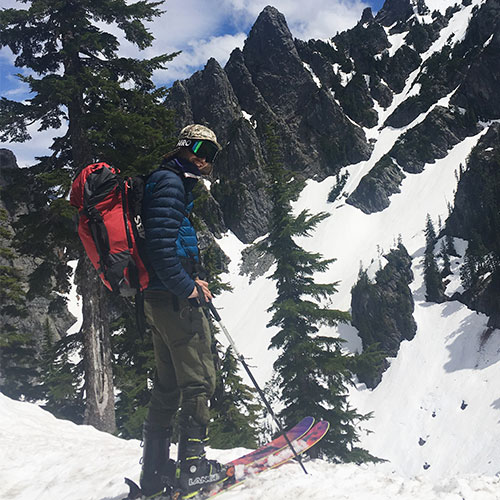
Newborn Screening for Critical Congenital Heart Disease (CCHD) in Washington State
PRACTICUM SITE: Washington State Department of Health – Screening and Genetics Unit
SITE SUPERVISOR: Nirupama Shridhar
DEPARTMENT: Public Health Genetics
FACULTY ADVISER: Bruce Weir
I gained an interest in genetics while I studied neuroscience during my undergraduate studies. I love the cutting edge research being done in the field but was more interested in how the field could be applied to the general public. When I discovered the Public Health Genetics program at UW it seemed like a perfect fit. I recently began my public health career by starting a job with the Washington State Department of Health Screening and Genetics Unit (where I completed my practicum). During my practicum, I analyzed Critical Congenital Heart Disease data and developed a report for stakeholders. I also wrote a draft IRB application for hereditary cancer active surveillance and bidirectional reporting using the Washington State Cancer Registry. Outside of school and work I love to cook, ski, and try new hobbies.
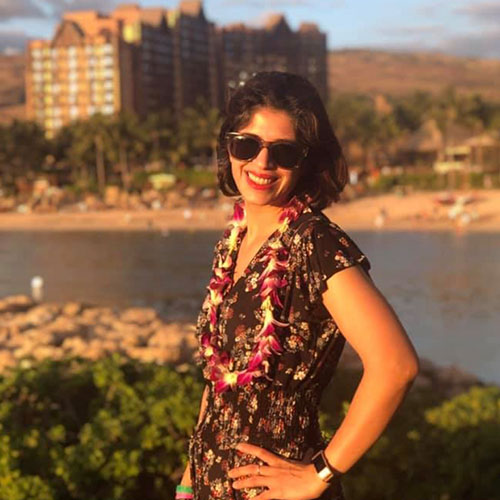
The Rapid Health Information NetwOrk (RHINO) program
PRACTICUM SITE: Washington State Department of Health – The RHINO Program
SITE SUPERVISOR: Amanda Morse
DEPARTMENT: Health Services (Executive MPH)
FACULTY ADVISER: David Masuda
I am a first year EMPH student and a physician (internist) by profession. I belong to the southwest province of Pakistan, Baluchistan which is famous for being the largest of the four provinces, ethnically diverse, with a strong tribal system, and rich in mineral resources despite the dry climate and rugged terrain. Due to the nature of my husband’s job, I decided to take a break from clinical medicine, accompany him to different countries, and raise a family. I volunteered extensively in different healthcare facilities of almost every city I’ve lived in, and that reinvigorated my passion for pursuing a master’s degree in public health. For my practicum, I am assisting the RHINO program at the Washington State Department of Health (DOH) to improve outreach, surveillance support, and data product development for healthcare partners. It is a remote data analysis project where I am responsible for analyzing, maintaining, and meaningfully interpreting health data from the National Syndromic Surveillance Platform (NSSPE) for partner healthcare facilities in order to aid them for better healthcare decisions, research, and support. I am interested in exploring fields involving data analytics in healthcare research as a possible career for myself. I love to run, hike, and volunteer at my children’s school whenever possible, and I love to travel and explore different countries and cultures.
Faculty Moderator: Ahoua Kone
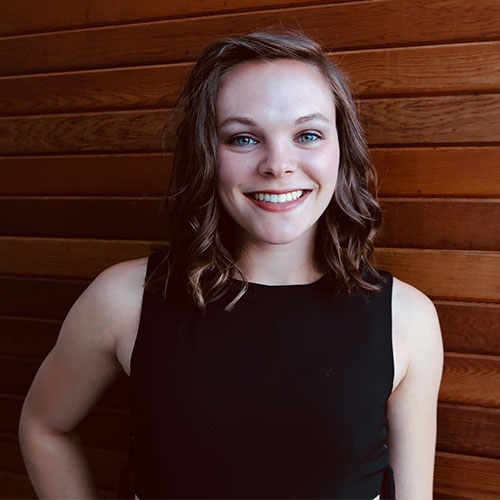
2019 HIV/AIDS Epidemiology Report & Community Profile
PRACTICUM SITE: Public Health – Seattle & King County
SITE SUPERVISOR: Sara Glick
DEPARTMENT: Epidemiology
FACULTY ADVISER: Lisa Manhart
I am a second-year MPH student with a B.S. in Biology and a background in clinical research. My interest in health-related research and science eventually guided me to graduate study in Epidemiology. My primary research interests involve infectious diseases, primarily HIV and STDs, in high-risk populations. For my practicum, I aided in coordinating, editing, and publishing the 2019 HIV Surveillance report with the HIV/STD program team at Public Health- Seattle & King County. I cooperated with epidemiologists and public health professionals to organize and format the 2019 issue while managing project deadlines. Additionally, I helped edit articles and design layouts and data visualizations. I also developed a set of working definitions based on other city and state HIV surveillance reports in order to allow a more general audience to understand and interact with the information we provided. The result was that I was able to coordinate with co-authors from around Washington State to bring together information relevant to prevention and policy implementation regarding HIV and AIDS. The final draft of the report was released in December 2019 to the public.
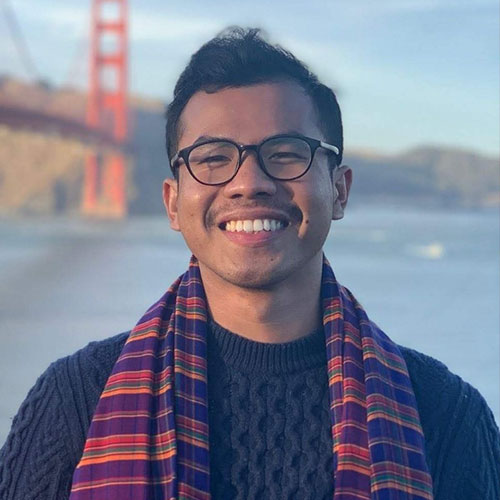
Economic Inequity is a Health Issue in Washington State
PRACTICUM SITE: Washington Physicians for Social Responsibility (WPSR) – Economic Inequity and Health Program
SITE SUPERVISOR: Max Savishinsky
DEPARTMENT: Global Health
FACULTY ADVISER: Ahoua Kone
I was born in Sumbawa, an island in the southern part of Indonesia. I decided to pursue a degree in Global Health because from an early age on, I was exposed to inequalities in many sectors including health, and I grew up in a community that lacked adequate healthcare facilities. Writing my thesis on nutrition and gender equity in Timor-Leste made me realize that economic inequity is the biggest threat to human health. Therefore, for my practicum, I work with the Washington Physicians for Social Responsibility in the Economic Inequality and Health program. I produced a factsheet and a poster as tools to raise awareness on how economic inequity impacts the health of Washingtonians. Furthermore, with WPSR, I became involved in the Working Family Tax Credit coalition and Balance Our Tax Code to advocate for better economic policies and health outcomes in Washington State. In the future, I hope to get more involved in health policy and advocacy, aiming to champion economic equity and health for all. Outside of school and work, I enjoy hiking and camping, catching the sunset by the beach, and cooking.
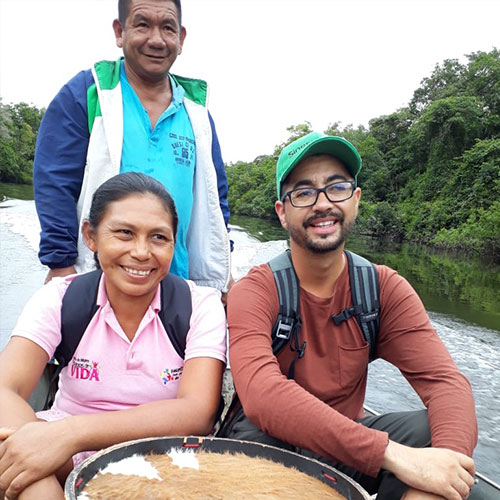
A Look at the Routes of Attention to Victims of Gender-based Violence with Indigenous Populations in the Colombian Amazon
PRACTICUM SITE: Sinergias – Bogota
SITE SUPERVISOR: Pablo Montoya
DEPARTMENT: Global Health
FACULTY ADVISER: Scott D. LaMontagne
Coming to the US from Bolivia as a teenager, I quickly learned that I was in a country that provided many more educational opportunities. Once I obtained a degree in Physiology from Seattle Pacific University and became a US citizen, I joined Peace Corps and worked in HIV prevention campaigns in Botswana. It was during this time that I learned about the social determinants of health that prevent people from getting quality healthcare, something that fueled my desire to learn about public health and pursue my MPH in the Global Health Department. For my practicum I partnered with the Colombian NGO Sinergias to review and evaluate the routes of attention for victims of Gender-Based Violence (GBV) from indigenous tribes in the Colombian Amazon. Ultimately, this project will contribute to developing more appropriate routes of attention and elaboration of GBV prevention strategies. In the near future, I hope to use my experiences in Botswana and Colombia to contribute to the improvement of programs that aim to empower women, seek social justice, and reduce maternal and child mortality in different parts of the world. Outside of school, I enjoy cooking for family and friends.
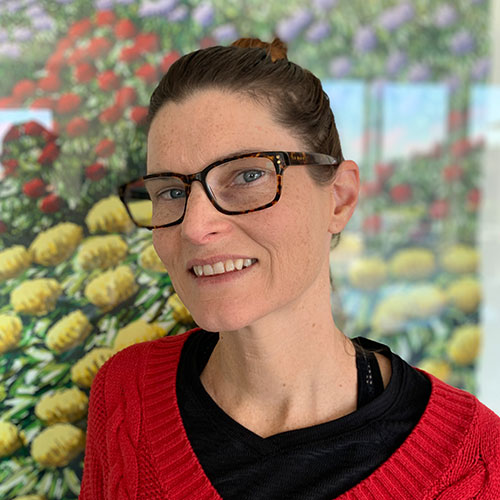
Best Practices for Teachers and External Learners at Planned Parenthood of the Great Northwest and Hawaiian Islands (PPGNHI)
PRACTICUM SITE: Planned Parenthood of the Great Northwest and Hawaiian Islands (PPGNHI)
SITE SUPERVISOR: Kelly Kajumulo
DEPARTMENT: Global Health
FACULTY ADVISER: Alison Roxby
I am a second year MPH student at the University of Washington in the Department of Global Health (General Track). I am a New Zealand trained Endocrinologist with an interest in reproductive health, and since moving to the US have been involved in research in the area of hormonal male contraception (HMC). For my practicum, I worked as a graduate intern at PPGNHI, an organization that not only provides general and reproductive healthcare, but also training for many health professionals. I undertook a literature review looking at best practices for teachers and external learners in healthcare and developed a set of recommendations specifically tailored to the unique environment of PPGNHI. In my spare time, I enjoy hiking, skiing and cycling with my family. I also have a border collie that keep me on my toes!
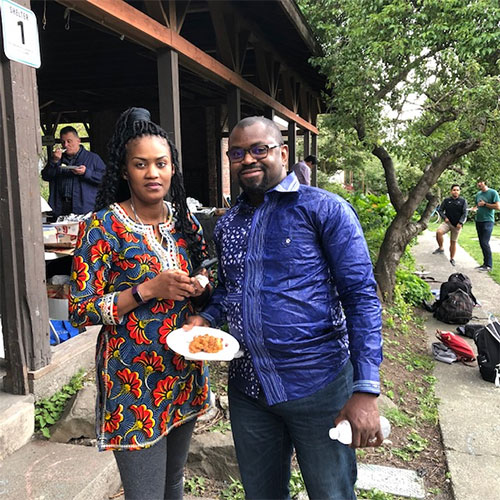
Improving Maternal and Neonatal Care Using the PRONTO Training Program
PRACTICUM SITE: PRONTO International
SITE SUPERVISOR: Heidi Breeze-Harris
DEPARTMENT: Global Health
FACULTY ADVISER: Karen Cowgill
I am a Congolese trained physician with an interest in maternal and child health. For my practicum, I worked as a graduate student intern at PRONTO International, an international non-profit organization dedicated to optimizing care during birth by developing and implementing innovative training strategies for health care providers. I developed a training program for French-speaking countries of Africa (one for Madagascar in particular) and supported an ongoing research study in India and Timor-Leste. Additionally, I undertook a literature review for an upcoming research project in Africa. In my spare time, I enjoy hiking and teaching karate to my children. I am also a professional French interpreter and translator, providing interpretation services for limited English proficient patients across the US. In the future, I want to get involved in implementation science, aiming to strengthen the health system in the Democratic Republic of Congo.
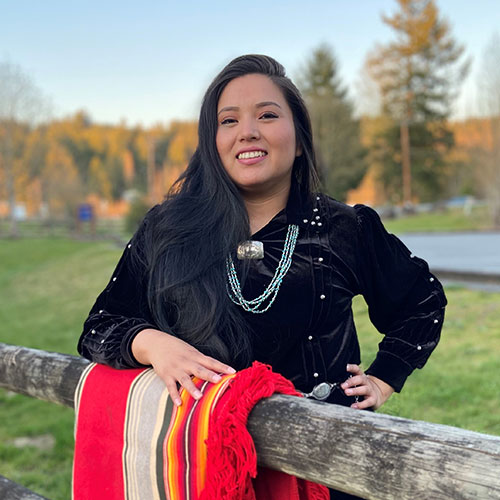
Decolonizing Data while Building Resiliency and Action to Nurture Community Health (BRANCH) to contribute to the public health needs of Urban Native Populations
PRACTICUM SITE: Urban Indian Health Institute – Seattle Indian Health Board
SITE SUPERVISOR: Rose James, Erica Charley
DEPARTMENT: Global Health
FACULTY ADVISOR: Sarah Benki
I am from the Diné tribe, from Monument Valley, Ut, Navajo Nation. My interest in public health, stemmed from my life experiences and perceptions of healthcare systems on and off the reservation, where there is a lack of resources and limited access to quality healthcare that also encompassed mind, body, soul and spirit. In addition, there were language and culture barriers as well as inequities and injustices in both rural and urban Native health settings. I did my practicum at the Urban Indian Health Institute (UIHI), a division of the Seattle Indian Health Board (SIHB) and was able to take part in indigenous methodologies trainings that emphasized complementing western science and indigenous knowledge systems. I was also able to help UIHI in areas such as disease surveillance, HIV/Hep C, suicide and substance misuse prevention, diabetes and chronic disease prevention. I had the privilege to engage with Native communities in Washington; special recognition to the Urban Seattle Native Community, Taholah Native Community of Quinault Nation, and Lummi Nation. In the future, I plan to continue spending my time working within an Indigenous public health sphere, potentially back home in Monument Valley. I am also passionate about Native Youth, and could see myself initiating or contributing to an organization in my local community that is youth oriented.
Faculty Moderator: Clarence Spigner
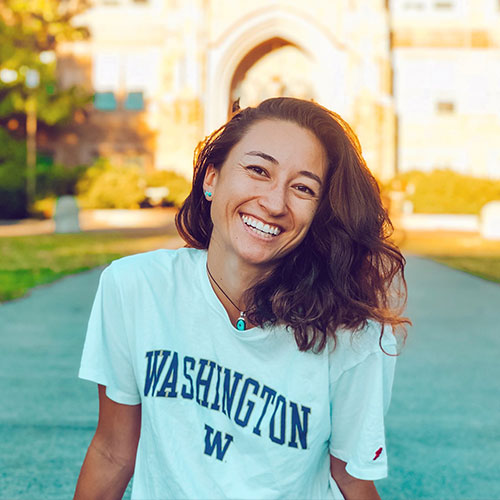
Costs of Providing HIV Self-Test Kits to Pregnant Women Living with HIV for Secondary Distribution to Male Partners in Uganda
PRACTICUM SITE: Kitebi Antenatal Clinic, Uganda
SITE SUPERVISOR: Andrew Mujugira
DEPARTMENT: Global Health
FACULTY ADVISOR: Connie Celum
I am a second-year MPH student and soon-to-be PhD student in Epidemiology at UW. I have been fascinated with studying HIV in sub-Saharan Africa since I was a child, raised in Zambia by my two epidemiologist parents. Living abroad in a multiracial family, I fell in love with cultures and languages, leading me to study anthropology at UC San Diego (where I also played collegiate soccer). Since university, I have worked in epidemiologic research at the Stanford Cancer Institute, UNAIDS and Foundation for Innovative New Diagnostics in Switzerland, PATH, and currently at UW’s International Clinical Research Center as Dr. Connie Celum’s research assistant. As part of my MPH Practicum, I traveled to Uganda to collect costing data for the Obumu Study, Dr. Celum’s randomized controlled trial assessing secondary distribution of HIV self-testing kits by pregnant women living with HIV to their male partners of unknown status. This intervention is important to close the testing gap among men, and countries across sub-Saharan Africa have already begun scaling it up nationally. However, the cost implications of this testing delivery strategy are unknown – and our paper will be the first to publish on the topic. We have chosen to submit this paper to Diagnostics as an open-access paper, so that policymakers in low-resource countries can view our findings free of charge. We hope that our findings can also be used in budget impact and cost-effectiveness analyses of this important intervention.
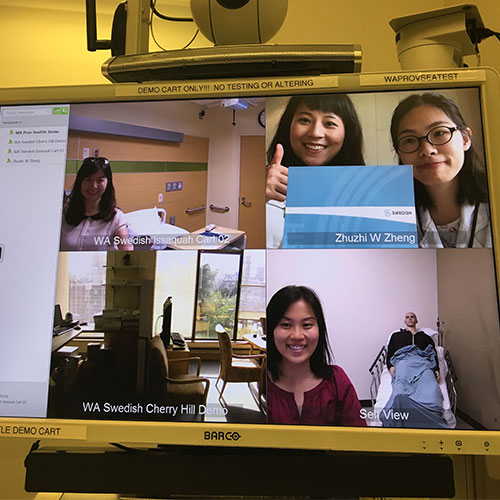
Communication and dissemination of a scenario-based cervical precancer planning tool
PRACTICUM SITE: PATH
SITE SUPERVISOR: Kerry Thomson
DEPARTMENT: Global Health
FACULTY ADVISER: Joseph Babigumira
I'm a third-year concurrent degree student in PhD in Nursing and MPH in Global Health. Prior to joining the University of Washington, I practiced as a nurse for four years in rural Virginia, Peru, and Washington, focusing on the promotion of health equity and grassroots community organizing efforts. My research interest is cancer prevention/control in low-resource settings, with focus on four key areas: cervical cancer prevention and treatment, social determinants of health, health systems strengthening, and community-based interventions. The goal of this practicum was to build out the communications for the dissemination of a scenario-based planning tool developed in collaboration between the PATH market dynamics and cervical cancer teams. In the future, I would like to work as a researcher to reduce cancer disparity locally and globally. Outside of work, I enjoy spending time with my family, traveling, photography and yoga.
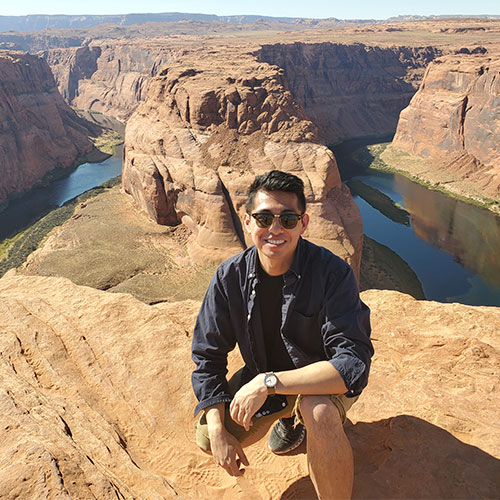
Diabetes and Public Housing among the Medicaid Population in King County
PRACTICUM SITE: Public Health - Seattle & King County, Assessment, Policy Development and Evaluation Unit (APDE)
SITE SUPERVISOR: Alastair Matheson
DEPARTMENT: Health Services
FACULTY ADVISER: Clarence Spigner
I am a second year, Master of Public Health student in the Health Services department. My primary interests include social determinants of health-related work, improving health equity and spatial epidemiology. For my practicum project, I analyzed the relationship between public housing and diabetes status in King County. My hope is that my project provides actionable steps to key stake holders to improve diabetes related outcomes in King County. In the future, I hope to continue to work in public health practice and to strive towards improving health equity in my community and ultimately resulting in improved population health.
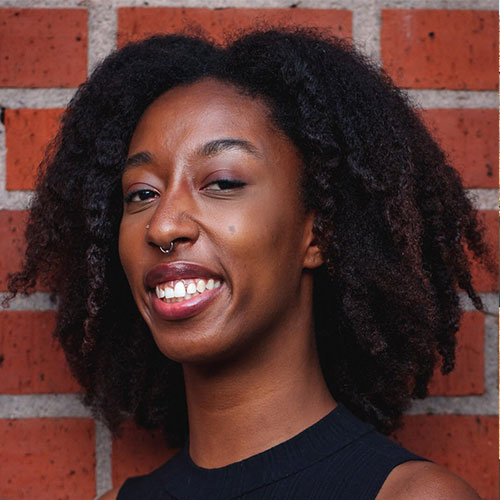
Oregon Health Authority Partnership Evaluation
PRACTICUM SITE: Oregon Health Authority
SITE SUPERVISOR: Courtney Fultineer
DEPARTMENT: Environmental and Occupational Health
FACULTY SUPERVISOR: Joel Kaufman
Throughout my career, I've collaborated with a variety of organizations in the community with the goal of improving health through education. Currently, I work as a Youth Prevention Education Specialist at Raphael House, a domestic violence shelter in Portland, Oregon. In this role, I'm required to collaborate with local schools, youth organizations, health clinics, and law enforcement to develop training on a range of topics surrounding healthy relationships, intimate partner violence, and exploitation. My interest in collaborating with different organizations in Oregon led me to Oregon Health Authority (OHA) where I completed my practicum. In my role at OHA, I developed two surveys to evaluate OHA's relationship with their internal and external stakeholders and community partners. One survey was qualitative for internal stakeholders and the other was quantitative for external stakeholders. I conducted the qualitative interviews, analyzed the results, and presented my findings to the staff at OHA. I enjoyed working closely with Courtney Fultineer, the Program Coordinator for OHA's Public Health Division. I was also grateful for the experience of working for a government agency. When I'm not working at Raphael House, you can find me reading books about critical race and feminist theory, freelancing as a graphic designer and social media content creator, or hanging out with my fiance and our pets.
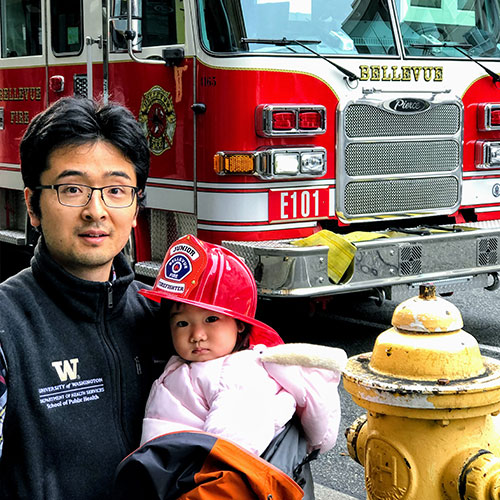
Japanese Community’s Needs for 9-1-1 Use and Bystander CPR
PRACTICUM SITE: Vulnerable Population Strategic Initiative (VPSI), Public Health – Seattle & King County – Emergency Medical Services
SITE SUPERVISOR: Hendrika Meischke
DEPARTMENT: Health Services
FACULTY ADVISER: Clarence Spigner
I began my career working as a physician in a public hospital in Japan, where I felt the importance of a "preventive approach" strongly. My passion for improving health and health systems led me to the Japanese Ministry of Health, Labour, and Welfare, where I expanded my experiences in policymaking and administration, especially in infectious disease control and medical fees under the National Health Insurance. I got the opportunity to study abroad, and I decided to enter the MPH program at the University of Washington, where I continue to expand my interests and experiences in public health with a focus on health systems and policy. My practicum project focuses on the Japanese community, specifically on people with limited English proficiency. My project 1) identified organizations that serve the Japanese community in King County, Washington, 2) assessed the information needs of the Japanese community related to 9-1-1 use and emergency response, and 3) investigated how to best reach the Japanese community with culturally/linguistically relevant information. I hope to help improve public health in Japan using the experiences and skills I am getting in the MPH program. Outside of work, I enjoy spending time with my family and friends, reading, and traveling.